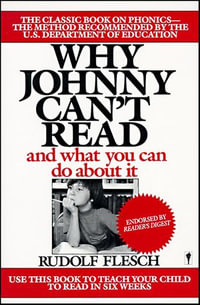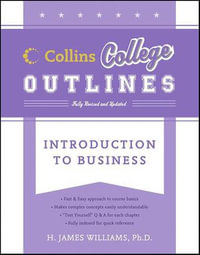
eTEXT
Developing Mathematical Reasoning
Avoiding the Trap of Algorithms
eText | 18 February 2025 | Edition Number 1
At a Glance
eText
$62.70
Instant online reading in your Booktopia eTextbook Library *
Read online on
Not downloadable to your eReader or an app
Why choose an eTextbook?
Instant Access *
Purchase and read your book immediately
Read Aloud
Listen and follow along as Bookshelf reads to you
Study Tools
Built-in study tools like highlights and more
* eTextbooks are not downloadable to your eReader or an app and can be accessed via web browsers only. You must be connected to the internet and have no technical issues with your device or browser that could prevent the eTextbook from operating.
Math is not rote-memorizable. Math is not random-guessable. Math is figure-out-able.
Author Pam Harris argues that teaching real math—math that is free of distortions-will reach more students more effectively and result in deeper understanding and longer retention. This book is about teaching undistorted math using the kinds of mental reasoning that mathematicians do.
Memorization tricks and algorithms meant to make math "easier" are full of traps that sacrifice long-term student growth for short-lived gains. Students and teachers alike have been led to believe that they've learned more and more math, but in reality their brains never get any stronger.
Using these tricks may make facts easier to memorize in isolation, but that very disconnect distorts the reality of math. The mountain of trivia piles up until students hit a breaking point. Humanity's most powerful system of understanding, organizing, and making an impact on the world becomes a soul-draining exercise in confusion, chaos, and lost opportunities.
Developing Mathematical Reasoning: Avoiding the Trap of Algorithms emphasizes the importance of teaching students increasingly sophisticated mathematical reasoning and understanding underlying concepts rather than relying on a set rule for solving problems. This book illuminates a hierarchy of mathematical reasoning to help teachers guide students through various domains of math development, from basic counting and adding to more complex proportional and functional reasoning.
Everyone is capable of understanding and doing real math. This book:
- Highlights the important mathematical relationships, strategies, and models for students to develop
- Offers personal stories, reflection sections, and extensive practical exercises for easy implementation
- Includes real math—a lot of it—to provide teachers with examples they can put to use in their classrooms immediately
This book is a valuable resource for educators looking to reach more students by building a strong foundation of mathematical thinking in their students. By addressing common misconceptions about math and providing practical strategies for teaching real math, this book shows that everyone can use the mathematical relationships they already know to reason about new relationships. In other words, everyone can math.
Read online on
ISBN: 9781071978368
ISBN-10: 1071978365
Series: Corwin Mathematics Series
Published: 18th February 2025
Format: ePUB
Language: English
Publisher: SAGE Publications
Edition Number: 1























